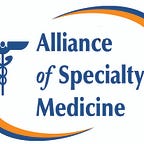A National Strategy on PPE is Needed for both Doctors and Patients
Murad Alam, MD. George Hruza, MD. Madhav Swaminathan, MD.
As the COVID-19 pandemic emerged in the spring, many dermatologic surgeons, along with their physician colleagues saw their scheduled procedures and visits with patients, canceled or postponed in accordance with federal and state guidance designed to reserve limited supplies of personal protective equipment (PPE) for healthcare workers providing care to COVID-19 and emergency patients.
Physicians are now reopening their practices and resuming treatment of their patients. However, they must navigate continually evolving conditions in their states as COVID-19 cases wax and wane and state guidance changes accordingly.
Against this backdrop, many physicians face severe difficulties in securing adequate and reliable sources of PPE. While larger institutions may have had existing relationships with PPE providers prior to the pandemic, now even the smallest practices require dependable sources of PPE. Moreover, physicians report that obtaining consistent supplies of N95 masks is even more difficult, or they are subject to terrible price gouging and counterfeiting by unscrupulous vendors.
Our physician partners working in echocardiography also cite the data surrounding the higher value of PPE like N-95s for health care workers (HCWs). The supply chain logistics also continue to be problematic, with most institutions either recycling N95s or limiting their use to HCWs taking care of known COVID-19 cases. With the increase in asymptomatic cases, the risk of transmission remains elevated and likely increasing. Hence, the lack of adequate PPE in the form of suitable masks remains a problem. While most other supply-chain issues have been resolved to a large degree, the scarcity of N-95s is still a significant issue that decreases confidence among HCWs potentially exposed to an infected population.
The lack of universal N-95s for HCWs is a major problem for specialty care. A coordinated PPE strategy is also missing, with most institutions developing their own individual strategies. Office-based practices are often at the end of the line to gain access to PPE and often lack the flexibility to adjust to surges as they happen. We are often caught short in our supplies.
A dependable supply of appropriate PPE is essential for practices to remain viable, particularly as COVID-19 cases continue to rise in some states, wide-spread testing remains elusive and the number of asymptomatic cases is unknown. A strong, coordinated federal strategy is needed that includes the following:
· N95 masks for all healthcare workers
· Federal assistance with providing points-of-contact within states or localities to provide guidance to physicians on where to secure legitimate PPE
· Support for providers of these supplies with additional federal infection control resources
Specialists are pleased to see PPE manufacturing and access promoted in several federal legislative packages, including both the Heroes Act and the Heals Act (the larger COVID relief packages). However, without consensus among Congressional Leadership and President Trump, PPE shortages will continue to have an adverse effect on the practice of medicine and patient safety.
By most accounts, the onset of the fall and winter seasons will mean a resurgence in COVID-19 cases compounded by infections of the common cold and flu. Patients will need to see their doctors. Yet without a national strategy in place on PPE, confidence in medical appointments will recede as will patient care. This will mean not only a delay in care for COVID-19, but further delays in needed screenings in treatments outside of the pandemic. Everything from necessary cancer follow ups to routine wellness checkups will suffer the consequences.
We urge Congress and the President to resume discussions on their next COVID relief package with renewed urgency with a strong focus on PPE access. Federal leadership and a national response are needed to keep doctors practicing medicine and keeping their patients safe and healthy.
Madhav Swaminathan, MD, MBBS, MMCi, FASE, is Vice Chair for Faculty Development, Duke Anesthesiology, and Professor of Anesthesiology, Duke University School of Medicine. He is the immediate Past President of the American Society of Echocardiography
George J. Hruza, MD, MBA, is Adjunct Professor of Dermatology and Otolaryngology, St. Louis University, Past President of the American Society for Dermatologic Surgery.
Murad Alam, MD, MBA, Vice Chair, Department of Dermatology
Chief of Cutaneous and Aesthetic Surgery in the Department of Dermatology at Northwestern University. Past President of the American Society for Dermatologic Surgery
Both the American Society for Dermatologic Surgery and the American Society of Echocardiography are members of the Alliance of Specialty Medicine.
